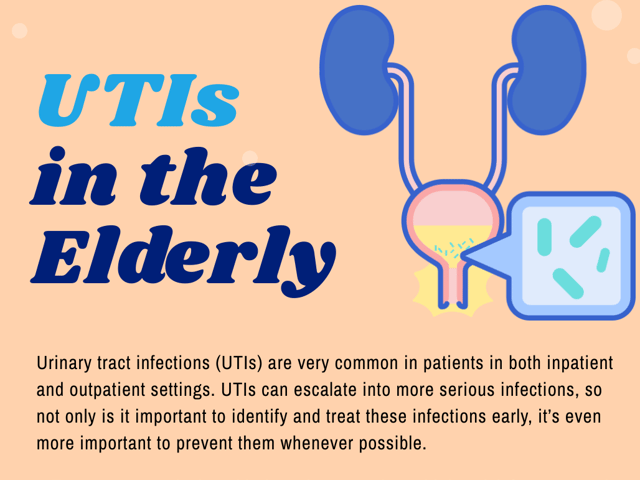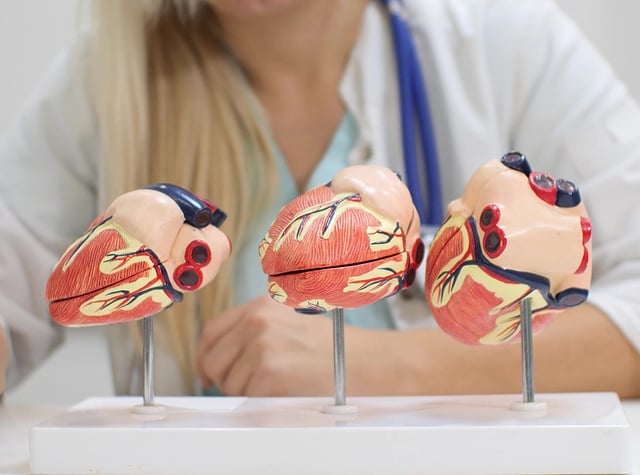
UTIs in the Elderly
Urinary tract infections (UTIs) are very common in patients in both inpatient and outpatient settings. UTIs can escalate into more serious infections, so not only is it important to identify and treat these infections early, it’s even more important to prevent them whenever possible. In particular, elderly patients can be at higher risk for UTIs, and the differences in their presentation can make them more difficult to diagnose.
The Causes
UTIs occur when bacteria multiplies in urine, which can occur in the urethra, bladder, or kidneys, and can lead to kidney infection, kidney failure, and/or sepsis. UTIs are caused by bacteria entering the urinary tract, which may be from catheter insertion or improper hygiene, possibly related to incontinence.
The elderly are more susceptible to UTIs because they naturally have a weakened immune system. Additionally, weakened bladder or pelvic floor muscles can cause more urinary retention and allow the bacteria to multiply more easily.
Common Symptoms
In most people, UTIs present with symptoms such as burning or pain with urination or an increased urgency or frequency of urination. However, when an elderly patient has a UTI, they may present with confusion or delirium that seem unrelated to an infection. Therefore, when caring for an elderly patient, it is important to remember that unusual behavioral changes like agitation or lethargy may in fact be a sign of a UTI.
Treatment
In most cases, UTIs are treated with antibiotics, which are generally taken orally. In the elderly population, these medications may interact with other medications they are taking. As with all antibiotics, it is crucial patients continue taking the antibiotics as prescribed and do not stop taking medications when the symptoms subside.
Prevention
The best way to treat a UTI is to prevent it from occurring. Increasing fluid intake can help ensure bacteria is flushed from the urinary tract on a consistent basis. In the elderly where incontinence is more frequent, particular attention should be paid to genitourinary hygiene. Keeping the external area as clean and dry as possible will decrease the risk of stagnant bacteria invading the genitourinary tract.

Keep Reading

Health Education Systems Incorporated Exam Blog
HESI Anatomy and Physiology Review: A Comprehensive Guide
As you prepare for the Health Education Systems, Inc (HESI) Admission A…

Health Education Systems Incorporated Exam Blog
How to Pass the HESI Exam: A Comprehensive Guide to Acing Your Nursing Entrance Exam
If you’re considering becoming a nurse, the HESI exam can be a crucial …

Health Education Systems Incorporated Exam Blog
The Complete Guide to HESI Exam Scores
Are you ready to become a nurse? Many nursing schools require entrance …